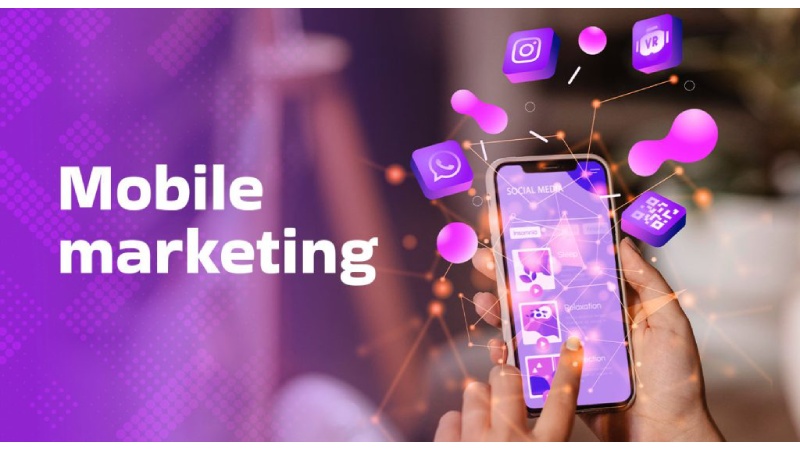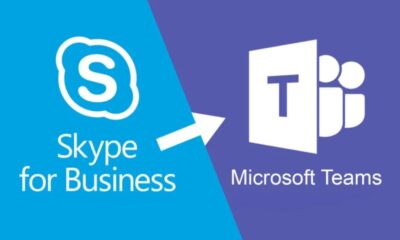Business
Things You should Need to Know about Mobile Marketing

Business owners always look for new ways to market their goods and services. An effective strategy is mobile marketing to reach people who are always on the move. In this article, you’ll learn more about mobile marketing, why it’s important, and why you might want to use it.
What Is Mobile Marketing?
The practice of promoting goods and services via mobile devices is known as mobile marketing. Smartphones and tablets are the most commonly used devices. Certain technologies may be used in mobile marketing to attract potential customers who are close to the advertising location. To properly target customers, technology may include geofencing and location services, as well as mobile SEO.
How Mobile Marketing Works?
Mobile marketing frequently targets the most effective ads based on a user’s location. Marketers use a technique known as geofencing to know where their customers are. At the time of advertising, a geofence provides the marketer with a geographical boundary within which to target mobile devices.
A restaurant might want to advertise a current dinner special, for instance. Using geofencing, they could target customers within a three-mile radius of the restaurant. They can deliver their advertisements to people who live near the restaurant in this manner. Because they are so close, it is more likely that someone will choose to eat there.
A mobile device can enter or exit the geofence at any time because geofencing is fluid. The goal is to attract individuals who are closest to the advertising location to the establishment. People are less likely to visit the establishment as they leave the geofence.
Pros and Cons of Mobile Marketing
Mobile marketing, like all marketing strategies, has advantages and disadvantages.
Benefits of Mobile Marketing
- Cost-effective: When compared to traditional print and television options, building mobile ads is less expensive. Any marketing budget can be accommodated by customizing ad campaigns.
- Location-based targeting: The location of the mobile device is used in mobile marketing to deliver relevant advertisements to customers based on their current location.
- Instant messaging: There is no waiting with mobile marketing. In real-time, the messages are sent and seen immediately. You don’t have to wait to find out if people will see the advertisement; It just happens.
- Better segmentation: Mobile marketing is a more efficient tool because you can tailor the message to the requirements of your target audience.
- Integrates with social media: With mobile marketing, businesses can reach users as they scroll through social media accounts.
Disadvantages of Mobile Marketing
- Inattention from customers: Mobile advertisements might not always catch the attention of consumers. They may quickly close an advertisement and not return to it, or they may be too busy with other things to scroll through social media.
- Technology dependence: If the technology is not widely adopted, you will not be able to successfully market to the demographic you want to reach.
- Ad blockers: Many people pay additional fees to ensure that the apps they use are free of advertisements. This may decrease the number of customers you are targeting.
- Navigation problems: If the customer device is set up for horizontal scrolling, ads may not display properly. This makes it hard to achieve and maintain their attention.
- Ads are invasive: The advertisements may be perceived as invasive by some people because they concentrate on particular customer groups. This can lead to a poor perception of the brand.
Types of Mobile Marketing
Mobile marketing comes in four types.
- Short Message Service (SMS) Text Messaging
The first method involves sending an ad or link to the consumer via SMS text messages. SMS is a simple mobile marketing strategy. Using an app that has an SMS application programming interface (API), the message that is going out is written and the phone numbers of the people who will receive it are listed. The message is sent to the subscriber list through a bulk campaign. Replying to messages can start a conversation between the recipient and the company. When using SMS text messaging, it is essential to adhere to federal regulations regarding subscriber opt-in and opt-out options.
- App Push Notifications
Using downloaded apps with push notifications as a mobile marketing strategy is another option. A pop-up that the recipient can click on is called a push notification. It was found to be more effective than marketing emails because it comes from the downloaded application. Emails had a 2% open rate, while push notifications had a 20% open rate, according to a Reckless study. The app asks for permission to send push notifications when a user downloads it. After that, the company can send a message that appears on the lock screen or home screen of the recipient. The message can be opened or closed by the recipient.
- In-app Ads
In-app advertisements are similar to push notifications. These are frequently found in games that consumers download and play on their smartphones or tablets. Throughout the game, an advertisement can be seen in the form of a banner or at various intervals. In-app ads are served by an ad network. An ad exchange receives a request to locate and select an advertisement whenever the app indicates that it is time for an advertisement to appear. The ad exchange makes use of user data to show the customer the best ads.
- Quick Response (QR) Codes
Finally, mobile marketers can reach customers through QR codes. A QR code is a one-of-a-kind collection of squares in black and white. The QR code can be scanned by the consumer’s phone, launching a sale or offer-related website. A QR code requires the consumer to actively download the offer, in contrast to other forms of mobile marketing that automatically download to the consumer’s device.
Significance of Mobile Marketing
In today’s tech-driven world, mobile marketing is one of the most important forms of marketing. It enables businesses to target customers based on their location, interests, or other demographic information. Businesses that cannot afford the high costs of traditional advertising can now more easily reach their target audience through mobile marketing. A small business can target a specific market with targeted advertising on a limited budget. Since people receive ads that are tailored to their preferences and requirements, this also has significant advantages for consumers. One of the most efficient methods for delivering goods or services to customers is mobile marketing.
Conclusion
Promoting products and services through mobile marketing can be beneficial to small businesses. Using smartphones or other mobile devices, this type of marketing focuses on particular demographics. Ad campaigns can be created on a tight budget, making marketing more accessible to more companies.
-

 Business2 weeks ago
Business2 weeks agoNayef Doleh Examines International Humanitarian Fundraising Strategies
-

 Business3 weeks ago
Business3 weeks agoHow Black Banx is Redefining Global Banking Strategies in 2025
-

 Business2 weeks ago
Business2 weeks agoHow to fill MSME Form 1? Step-by-Step Guide
-

 Tech4 weeks ago
Tech4 weeks agoHow to Switch Between Microsoft Teams and Skype, How To Export Messages, Files, and Contacts from Skype Before It Shutting Down
-

 Tech3 weeks ago
Tech3 weeks agoMicrosoft Teams to End SMS Messaging Feature Support for Android Phones and Switch to Phone Link App as Alternative
-

 Business4 weeks ago
Business4 weeks agoPurpose of the AIRdiamond Project
-

 Education3 weeks ago
Education3 weeks agoSchool Of Odd Thinkers – Think Odd, Learn a lot, and Earn a lot
-

 Education3 weeks ago
Education3 weeks agoThe Power of Differentiated Instruction: Patrick Granfar Discusses Its Impact on Student Learning























